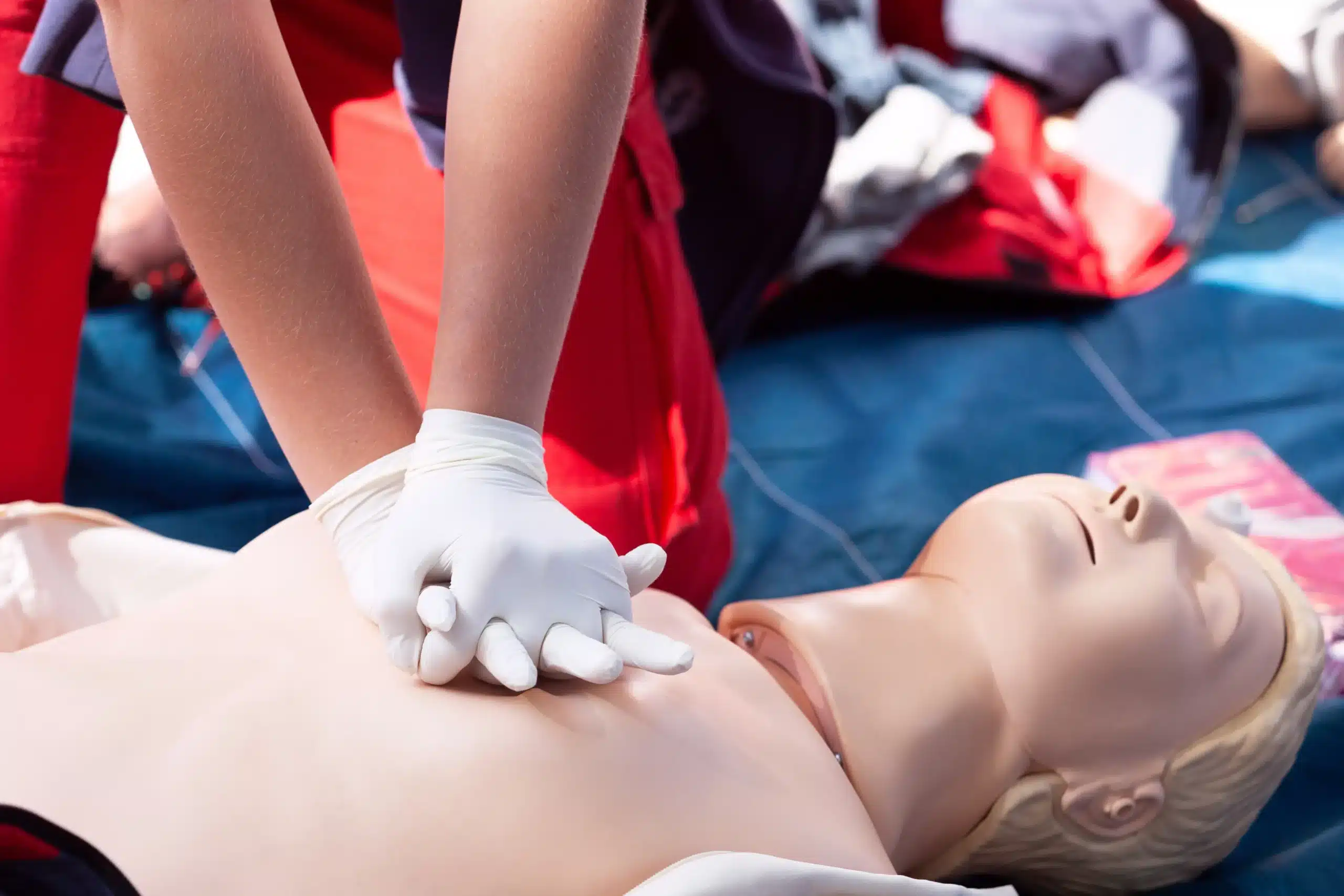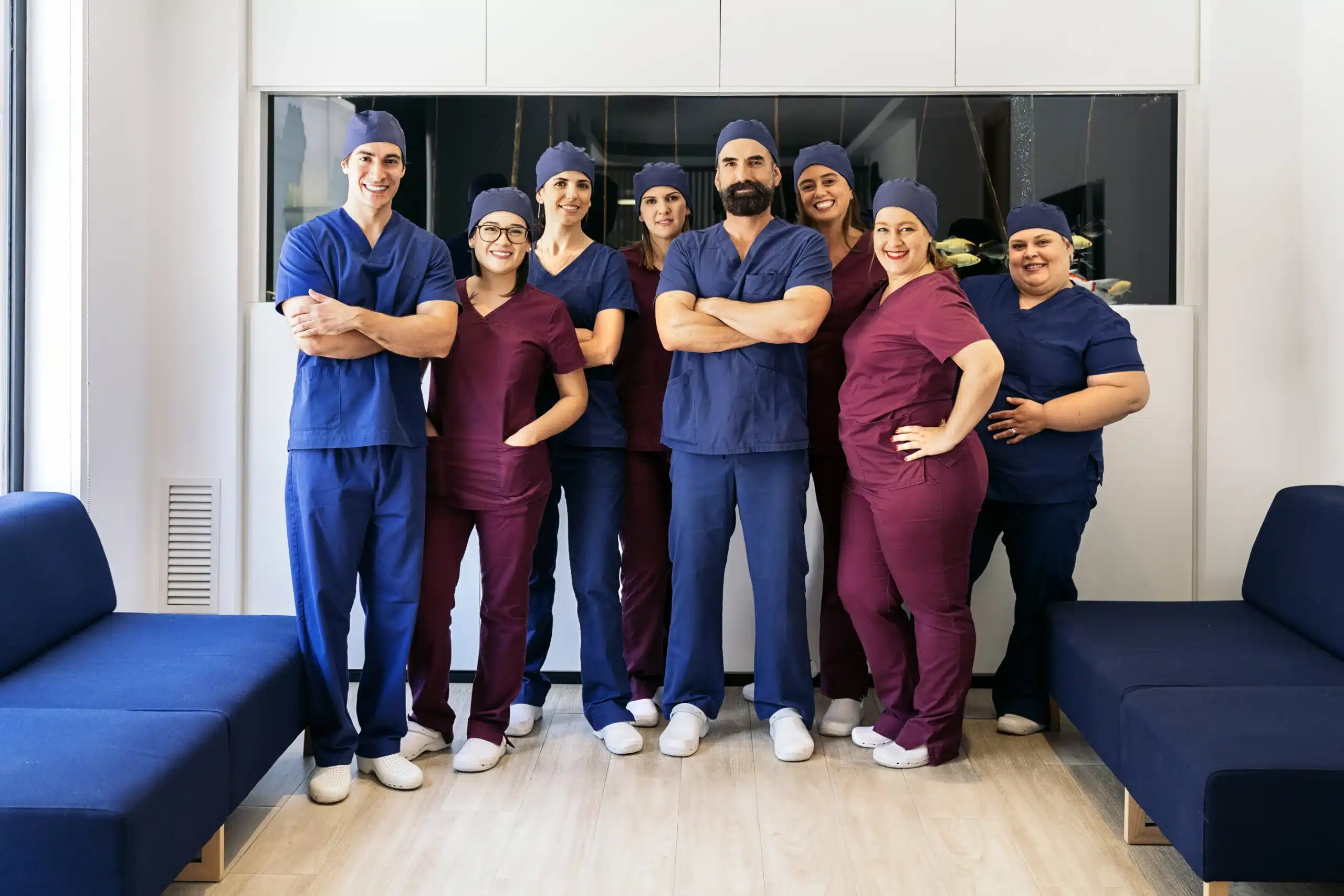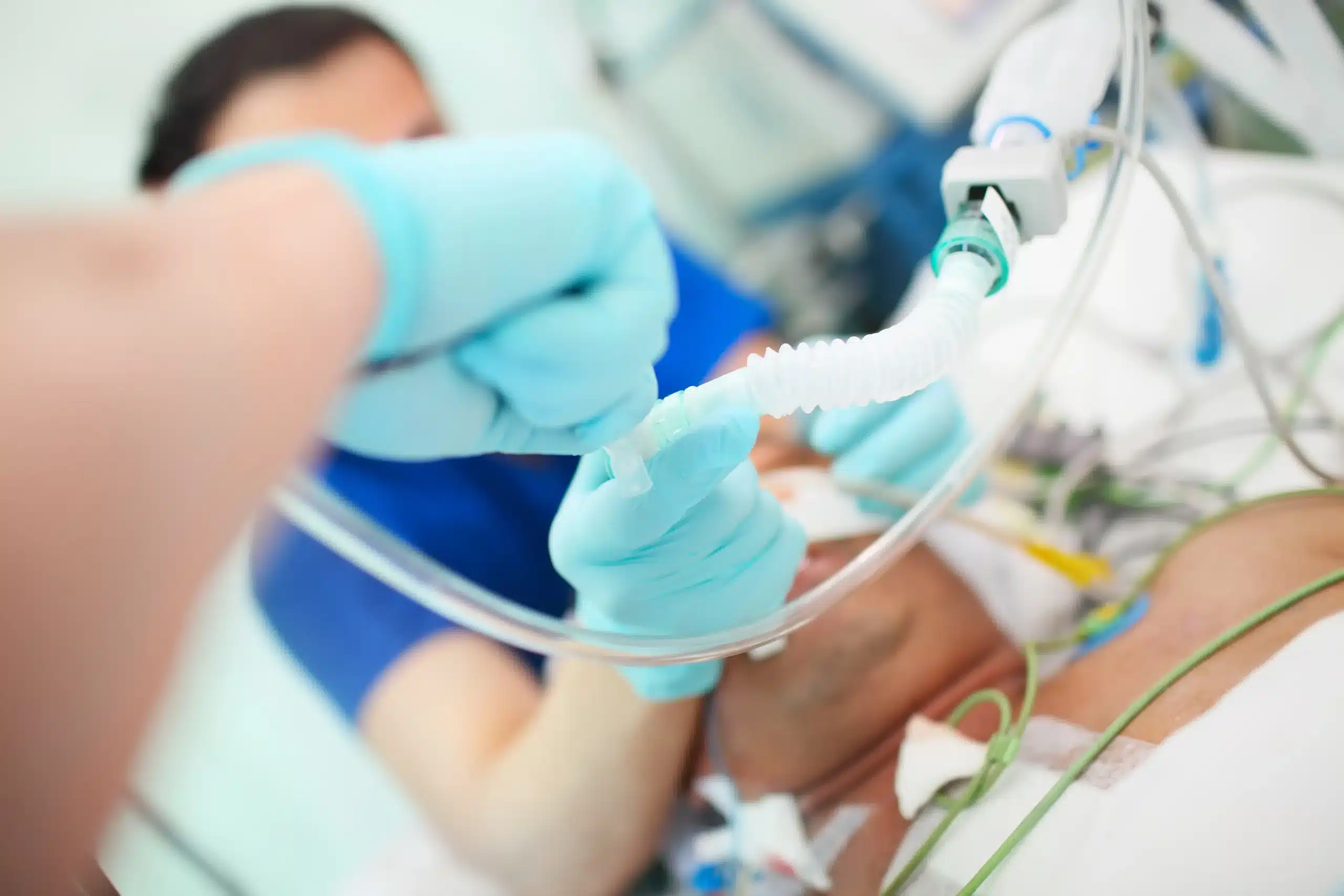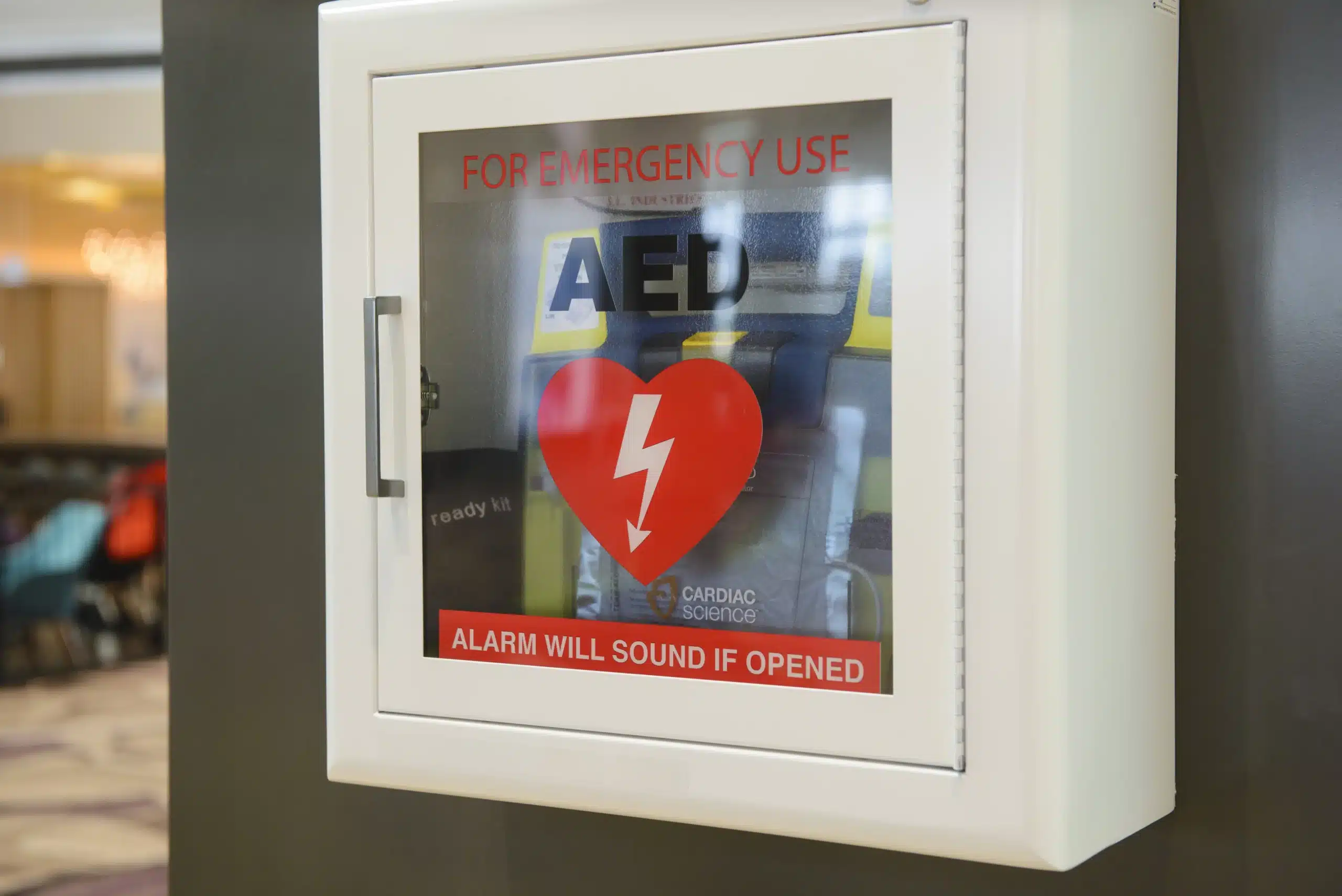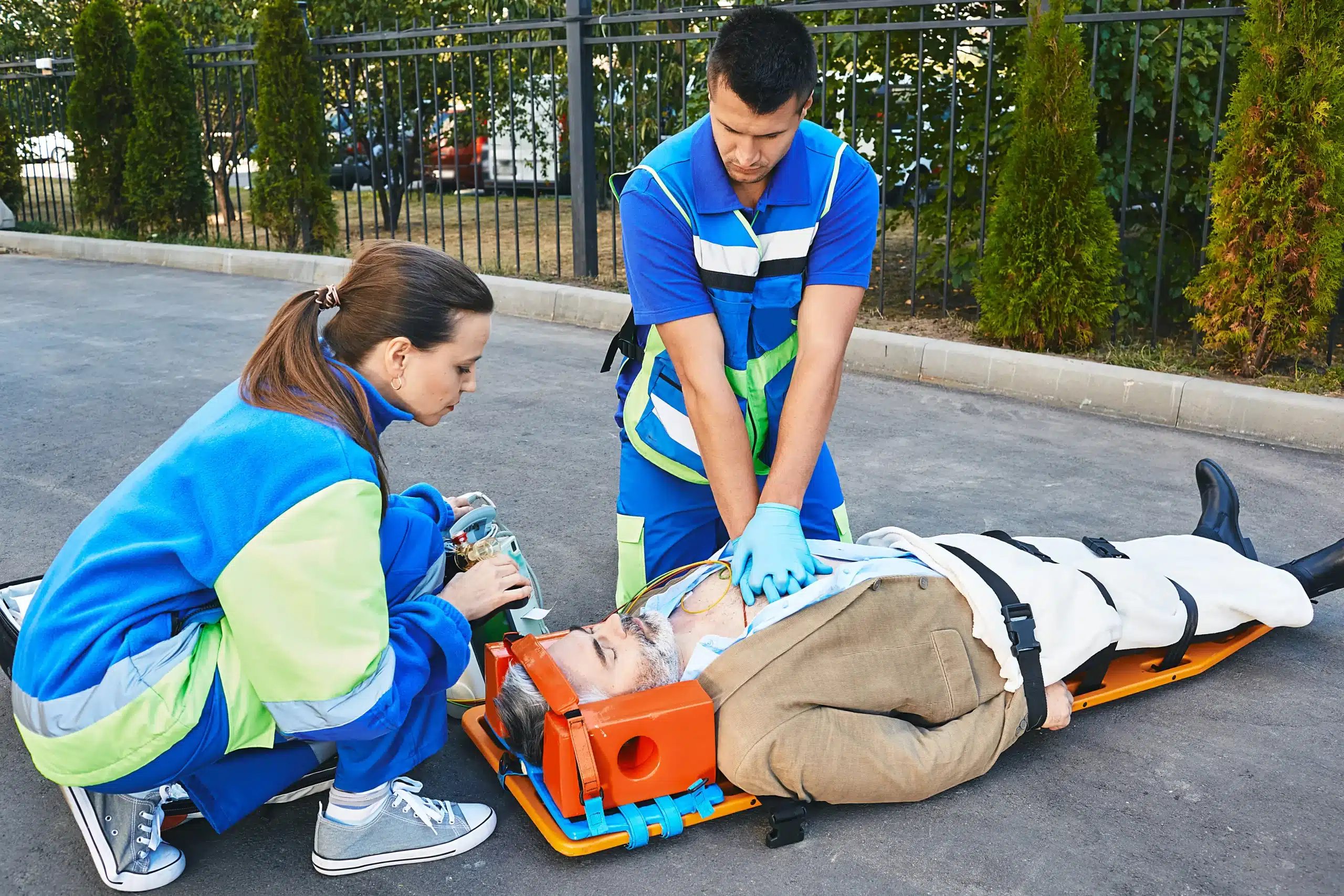Working in healthcare, you know that every second counts during a cardiac emergency. Having the right skills and knowledge can make all the difference in patient outcomes. That’s where Advanced Cardiovascular Life Support (ACLS) comes in. Whether you’re a seasoned healthcare professional looking to recertify or new to ACLS, understanding its importance and finding the right training program is crucial. This post explores everything you need to know about ACLS, from understanding its core components to finding the best ACLS courses in San Mateo. We’ll cover common misconceptions, the benefits of different learning options, and how ACLS training can enhance your career in healthcare. Let’s dive in and equip you with the knowledge and resources you need to excel in advanced cardiovascular care.
Key Takeaways
- ACLS certification goes beyond basic CPR: It equips healthcare professionals with the advanced skills needed to manage complex cardiac emergencies, encompassing a broader range of interventions like medication administration and electrical therapies. Staying current through recertification is vital for providing effective patient care.
- Choosing the right ACLS provider is essential: Look for an AHA-authorized training center with experienced instructors, flexible course formats (in-person, online, or blended), and comprehensive study materials. Consider factors like cost, location, and student support when making your decision.
- Preparation enhances your ACLS learning: Familiarize yourself with the latest AHA guidelines and algorithms before your course. Hands-on practice and simulations are crucial for building confidence and proficiency in essential skills. Don’t hesitate to ask your instructors questions – they are there to support you.
What is ACLS?
What is ACLS and who needs it?
Advanced Cardiovascular Life Support (ACLS) is specialized training designed to equip healthcare professionals with the skills to manage cardiovascular emergencies. It’s a comprehensive program covering a wide range of interventions, including airway management, electrical therapies, and advanced life support techniques. ACLS certification is essential for medical professionals such as physicians, nurses, paramedics, and other healthcare providers who may encounter cardiac emergencies. If you’re a healthcare provider working in areas like emergency rooms, intensive care units, or emergency medical services, ACLS certification is likely a requirement.
Available ACLS Courses
Initial Certification
If you’re new to ACLS, you’ll need to complete an initial certification course. These courses cover the core ACLS algorithms and protocols, providing a strong foundation in advanced cardiovascular care. You’ll learn essential skills, such as recognizing and managing cardiac arrest, implementing effective resuscitation techniques, and understanding the pharmacology of ACLS medications. Safety Training Seminars offers comprehensive ACLS courses that meet the American Heart Association guidelines.
Renewing Your Certification
ACLS certification typically needs to be renewed every two years. Recertification courses are designed to refresh your knowledge and skills, ensuring you stay up-to-date with the latest advancements in ACLS. These courses often cover updates to guidelines and best practices, allowing you to maintain the highest standard of patient care. Staying current with your ACLS certification is crucial for providing effective and safe patient care.
Blended Learning Options
For those seeking a flexible approach to ACLS training, blended learning options combine online modules with in-person skills sessions. This format allows you to learn the theoretical aspects of ACLS at your own pace, followed by hands-on practice and simulation in a classroom setting. Blended learning offers a convenient and effective way to achieve ACLS certification or recertification.
RQI Program
The Resuscitation Quality Improvement (RQI) program offers a more personalized and efficient approach to maintaining your ACLS skills. RQI uses low-dose, high-frequency training to reinforce essential concepts and improve retention. This program often involves online modules and short, frequent skills assessments, making it a convenient option for busy healthcare professionals. Learn more about the RQI program and how it can help you maintain your ACLS competency.
Common ACLS Misconceptions
One common misconception is that ACLS is simply an advanced form of CPR. While CPR is a vital component of ACLS, the scope of ACLS is much broader. It encompasses a wider range of interventions, including medication administration, electrical therapies, and airway management. Another misconception is that ACLS is only relevant to certain medical specialties. In reality, ACLS training is beneficial for any healthcare provider who might encounter a cardiovascular emergency, regardless of their specific area of practice.
Top ACLS Providers in San Mateo
Finding the right ACLS provider is crucial for high-quality training. Here’s a look at some of the top ACLS providers in San Mateo:
Safety Training Seminars
Safety Training Seminars is a woman-owned American Heart Association (AHA) Training Center offering various certification courses, including BLS, ACLS, PALS, CPR, and First Aid. They offer a low-price guarantee and focus on convenient, high-quality, affordable training. Classes are available daily throughout San Mateo and surrounding areas, including Daly City and Millbrae.
American Heart Association
While the AHA doesn’t directly offer training, they set the standards. Authorized training centers, like Safety Training Seminars, offer the latest AHA-compliant courses. The AHA-endorsed RQI program provides a flexible way for healthcare professionals to maintain their resuscitation skills and certifications.
Red Cross
The Red Cross offers CPR and First Aid training, but not ACLS certification. For ACLS, consider an AHA-authorized training center like Safety Training Seminars, which offers a comprehensive range of AHA-certified courses.
Local Hospitals and Medical Centers
Some local hospitals and medical centers may offer ACLS training, primarily for their staff. However, independent training providers like Safety Training Seminars offer the same AHA-certified courses with greater scheduling flexibility and often lower costs.
Cascade Training Center
Cascade Training Center provides ACLS training focused on keeping medical professionals current with the latest ACLS guidelines and best practices. They offer insights into the realities of ACLS, helping experienced professionals refine their skills.
Course Details & Logistics
This section covers the practical details of taking an ACLS course in San Mateo, from scheduling to certification.
Course Length and Schedule
ACLS courses in San Mateo are designed to fit busy schedules. The ACLS Renewal Course takes roughly 5–6 hours to complete, including skills practice and testing. Safety Training Seminars offers convenient scheduling options for professionals throughout the Bay Area, including those in Daly City and Millbrae. Check their website for the most up-to-date course calendar.
Costs and Discounts
The cost of ACLS courses in San Mateo typically ranges from $200 to $300, depending on the training provider and the type of course. Look for providers, like Emergency & Health Training Center, that offer discounts for group registrations. Some providers may also offer discounts for students, military personnel, or first responders. It’s always a good idea to inquire about potential cost savings when choosing your course. Safety Training Seminars offers a low-price guarantee.
Course Structure and Content
ACLS training equips healthcare providers with the advanced life support skills necessary to manage complex cardiac emergencies. The curriculum covers a wide range of topics, from airway management and electrical therapies to effective team dynamics during resuscitation scenarios. Safety Training Seminars offers a comprehensive range of AHA-certified courses, ensuring your training aligns with the latest guidelines. You’ll learn essential algorithms and practice critical thinking skills to provide the best possible patient care.
Hands-on Practice and Simulations
Hands-on practice and simulations are integral parts of ACLS training. These sessions allow you to apply your knowledge in a safe environment, building confidence and proficiency in essential skills. For a modern approach to skills practice and certification, consider the RQI program offered by Safety Training Seminars. RQI uses innovative technology and personalized learning to reinforce skills and improve resuscitation quality.
Certification Process
Upon successful completion of the course and skills testing, you’ll receive your ACLS certification. Many providers offer both digital and physical copies of your card, making it easy to access and share your credentials. ProMed Certifications offers insights into the acceptance of online certifications. Remember that recertification is essential to stay current with advancements in ACLS. Check with your certifying body, like the American Heart Association, for recertification requirements.
Prepare for Your ACLS Course
Getting ready for your ACLS course can make a real difference in your performance. Here’s what you should know:
Prerequisites and Study Materials
You should have a current BLS Provider certification before taking an ACLS course. This ensures you have the foundational knowledge needed for advanced cardiac life support. Review the latest ACLS guidelines and algorithms beforehand. Many providers, including Safety Training Seminars, offer study materials to help you prepare.
Tips for Success
A little preparation goes a long way. Make sure you’re familiar with the current ACLS guidelines from the American Heart Association. This will allow you to focus on practical application during the course. Don’t hesitate to ask your instructors questions—they are there to support you.
Choosing an ACLS Provider
With several ACLS providers available, choosing the right one is essential for a positive learning experience. Consider these factors:
Accreditation and Recognition
Look for a training center affiliated with a recognized organization like the AHA. Safety Training Seminars is a woman-owned AHA Training Center, offering a high-quality, accredited program.
Course Format and Flexibility
Think about what works best for you. Do you prefer in-person classes, online learning, or a blended approach? Safety Training Seminars offers a variety of formats and courses seven days a week. Check their website for details.
Instructor Qualifications
Experienced instructors can significantly improve your learning. Choose a provider with instructors who have strong medical backgrounds, like those at In Home CPR.
Updated Course Content
ACLS guidelines are regularly updated, so make sure your course reflects the latest information. Daly City CPR Classes emphasizes updated content, covering everything from airway management to electrical therapies.
Student Support
A good training provider offers ongoing support. Look for clear communication channels and helpful resources. Safety Training Seminars is known for its excellent customer service.
Get the Most Out of ACLS Training
Practical Applications for Healthcare Professionals
ACLS training equips healthcare providers with advanced life support skills applicable in various critical care settings. From airway management and vascular access to electrical therapies like defibrillation and synchronized cardioversion, ACLS builds upon basic life support (BLS) knowledge. This prepares you for complex cardiac emergencies, including heart attacks, strokes, and sudden cardiac arrest. These skills are crucial for physicians, nurses, paramedics, respiratory therapists, and other healthcare professionals working in emergency rooms, intensive care units, and other critical care environments. The practical application of these skills can significantly impact patient outcomes and improve survival rates. For those seeking comprehensive training, consider exploring available ACLS certification courses.
Why Recertify?
While some believe ACLS certification is a one-time achievement, recertification is essential for maintaining proficiency and staying current with the latest advancements in ACLS care. Regularly refreshing your training through ACLS recertification courses reinforces best practices and introduces new techniques, ultimately benefiting patient care. Recertification ensures your skills and knowledge remain sharp, allowing you to confidently respond to evolving medical practices and updated guidelines.
Improve Team Dynamics and Communication
Effective teamwork and communication are paramount in high-stress medical emergencies. ACLS courses emphasize the importance of clear communication, defined roles, and coordinated efforts within a resuscitation team. Training scenarios often involve simulated emergencies, providing opportunities to practice these essential teamwork skills through CPR and first-aid certification courses. Improved team dynamics and communication lead to more efficient and effective responses, optimizing patient care and minimizing errors during critical moments. Paramedics and emergency medical technicians trained in ACLS can initiate life-saving interventions before reaching the hospital, highlighting the importance of ACLS beyond traditional hospital environments.
Stay Updated on ACLS Guidelines
Medical knowledge and best practices are constantly evolving. Staying informed about the latest ACLS guidelines is crucial for seasoned medical professionals. Regularly reviewing updated algorithms, medications, and treatment protocols ensures you provide the most effective care based on current scientific evidence. Resources like the American Heart Association offer updates and continuing education opportunities to help healthcare providers remain at the forefront of ACLS advancements. Staying updated not only enhances your professional competence but also contributes to improved patient safety and positive outcomes. Consider supplementing your knowledge with additional RQI classes to further refine your skills and stay abreast of the latest developments in resuscitation techniques.
Related Articles
- ACLS Renewal in Daly City: Your Complete Guide – San Mateo CPR Classes
- Best Online ACLS Classes in Daly City – San Mateo CPR Classes
- CPR Certification in Daly City: Your Complete Guide – San Mateo CPR Classes
- AHA ACLS Classes in San Mateo, CA – San Mateo CPR Classes
Frequently Asked Questions
What exactly does ACLS training cover?
ACLS training goes beyond basic CPR to encompass a wide range of advanced life-saving techniques. It covers essential skills such as airway management, recognizing and managing cardiac arrest, administering medications, and understanding electrocardiograms (ECGs). The training also emphasizes effective team dynamics and communication during resuscitation scenarios. It’s designed to equip healthcare professionals with the knowledge and skills to handle complex cardiovascular emergencies effectively.
How often do I need to renew my ACLS certification?
Typically, ACLS certification is valid for two years. To maintain your credentials and stay up-to-date with the latest advancements in cardiovascular care, you’ll need to complete a recertification course before your current certification expires. Regular recertification ensures your skills and knowledge remain sharp, allowing you to confidently respond to cardiac emergencies.
What’s the difference between ACLS and BLS?
BLS (Basic Life Support) focuses on immediate life-saving techniques, such as CPR and using an AED, for anyone experiencing cardiac arrest or respiratory distress. ACLS (Advanced Cardiovascular Life Support) builds upon this foundation, providing healthcare professionals with more advanced skills and knowledge to manage complex cardiovascular emergencies. ACLS covers a broader range of interventions, including medication administration, ECG interpretation, and advanced airway management.
What if I have a busy schedule? Are there flexible training options?
Yes, there are flexible options available for ACLS training. Many providers offer blended learning courses that combine online modules with in-person skills sessions. This allows you to learn the theoretical aspects of ACLS at your own pace, followed by hands-on practice in a classroom setting. Some providers also offer the RQI program, which uses low-dose, high-frequency training to reinforce essential concepts and improve retention, making it a convenient option for busy professionals.
How do I choose the right ACLS training provider?
When selecting an ACLS training provider, consider factors such as accreditation and recognition, course format and flexibility, instructor qualifications, updated course content, and student support. Look for providers affiliated with recognized organizations like the American Heart Association. Consider whether you prefer in-person classes, online learning, or a blended approach. Experienced instructors can significantly enhance your learning experience. Ensure the course content aligns with the latest ACLS guidelines. Finally, choose a provider known for excellent customer service and ongoing support.


